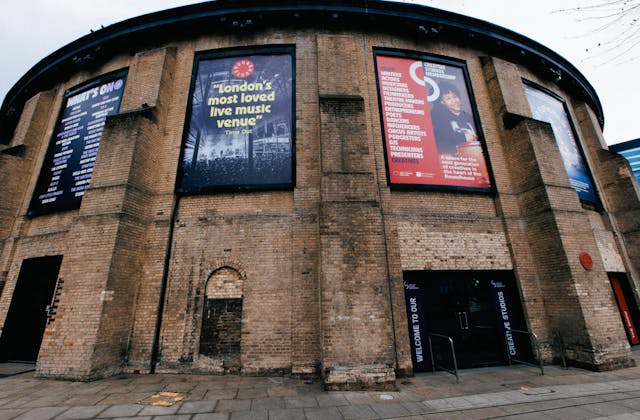Guy Lodge takes a look at the 2021 Best British Independent Film nominees
If it’s hard to believe it’s been a whole year since the last British Independent Film Awards, that’s because, well, it hasn’t. This is, in fact, the second BIFA ceremony to take place in 2021, the first — where Sarah Gavron’s vibrantly diverse youth study Rocks emerged triumphant — having unfolded both belatedly and digitally in February, when Britain was still in the uncertain limbo of another COVID lockdown. Confined to our living rooms, together but apart, we remotely reflected on a year of film that we had largely experienced away from cinemas: a bittersweet celebration, to be sure, but one that proved the resilience of British independent film even in anxious, confining times.
Ten months later, the picture is somewhat different, even if normality hasn’t wholly resumed. Cinemas have come roaring back to life in recent months, as Britons, weary of home viewing and social distancing, have come to re-embrace the communal pleasures of watching films together. And so it is for the BIFAs too, even if this year’s many long, lively discussions between award committees took place online: tonight, at last, we regather in person to give the year’s best films the party they deserve.
It’s not easy to identify neat common themes and subjects in BIFA’s rich, wide-ranging class of 2021, and that’s as it should be. Running the gamut from achingly intimate memoir to raucous comedy, from intense chamber drama to expansive science fiction, this year’s nominated titles across all categories collectively prove that there’s no such thing as a typical British independent film. What they largely do share, however, is an outward-looking curiosity about life in Britain and beyond, an interest in cultures meeting and melding, and characters changed by social contact and contrast — the exact cinematic corrective we need to our recent, pandemic-dictated era of isolation and introversion.
And so we turn to this year’s Best British Independent Film nominees, two of which thoughtfully depict lives altered and broadened by inter-cultural relationships, albeit with very different outcomes. In Clio Barnard’s Yorkshire-set romance Ali & Ava, a British-Pakistani landlord (Adeel Akhtar) and a white Irish teacher (Claire Rushbrook) are surprised to be drawn to each other in spite of familial obstacles and cultural differences. Of the latter, it’s their wildly opposed tastes in music — her love of gentle folk, his of feverish electronica — that wind up binding them most strongly, with shared playlists a prelude to shared lives. In Barnard’s quietly hopeful film, artistic diversity breaks more barriers than it builds.

Aleem Khan’s graceful, gradually shattering debut feature After Love, on the other hand, examines the impact of such a relationship once it’s over: the lasting meaning of a life lived between cultures, but no longer in tandem with someone else. Decades after she converted to Islam to marry her late British-Pakistani husband, Dover widow Mary (Joanna Scanlan) learns of his parallel life across the Channel in Calais, where his longtime lover Genevieve (Nathalie Richard) and biracial son Solomon (Talid Ariss) are unaware of his death. Set predominantly in France, Khan’s film deftly unpicks a cat’s-cradle of culture crossings, as Mary — having lived so long on her husband’s terms — re-establishes her sense of self.

Also crossing a large body of water for a second start at life is Rory (Jude Law), the tortured, secretive patriarch of a wealthy Anglo-American family in Sean Durkin’s exquisitely unnerving psychodrama The Nest. When he uproots them from a comfortable existence in upstate New York suburbia to start anew in the English countryside, his wife Allison (Carrie Coon) is sceptical: is he heading home to escape his demons or face them at last? American writer-director Sean Durkin has drawn on his own transatlantic childhood for a penetrating examination of British class-based shame. Sometimes it takes an outsider to see a society this coolly and clearly: The Nest demonstrates how British film benefits from an international outlook.

No great journeys are undertaken in Boiling Point: indeed, Philip Barantini’s kinetic, real-time pressure cooker of a film never leaves the confines of the trendy Dalston restaurant in which it’s set and shot — in one exhilarating, uninterrupted long take. Yet so much of modern Britain is represented in this tense, breathless space, from the moneyed metropolitan diners at most of the tables to the racially diverse, predominantly working-class staff labouring in the kitchen under the frazzled command of Stephen Graham’s brilliant, ladder-climbing head chef. Personal, cultural and economic conflicts flare up fast in Barantini’s restless cross-section of London society; not every fire is easily put out.

Finally, class privilege is self-effacingly addressed in Joanna Hogg’s extraordinary The Souvenir Part II, a rich and surprising sequel to her BIFA-nominated 2019 work of autofiction. Shifting focus from a romantic coming-of-age to a creative one, Hogg continues her self-portrait of the artist as a young woman, reflecting on her own film school days as her alter ego Julie (Honor Swinton Byrne) shakes off the ravages of grief and the blinkers of her comfy, cosseted upbringing to figure out what kind of storyteller she really wants to be. After floundering in locations and narratives far outside her realm, she learns to honour her own experience while remaining open and engaged with the changing world around her.

“I want to show life as I experience it,” she announces to her teachers, before making a film that at once resembles no else’s worldview and invites us to share it, for at least as long as the screen is illuminated. It’s all one can ask of a true independent filmmaker, and this year’s British Independent Film Award nominees all boldly live up to that same manifesto.
The 24th British Independent Film Awards will take place on Sunday 5 December hosted by Asim Chaudhry. Join us on BIFA’s Instagram for exclusive LIVE red carpet moments and highlights.




